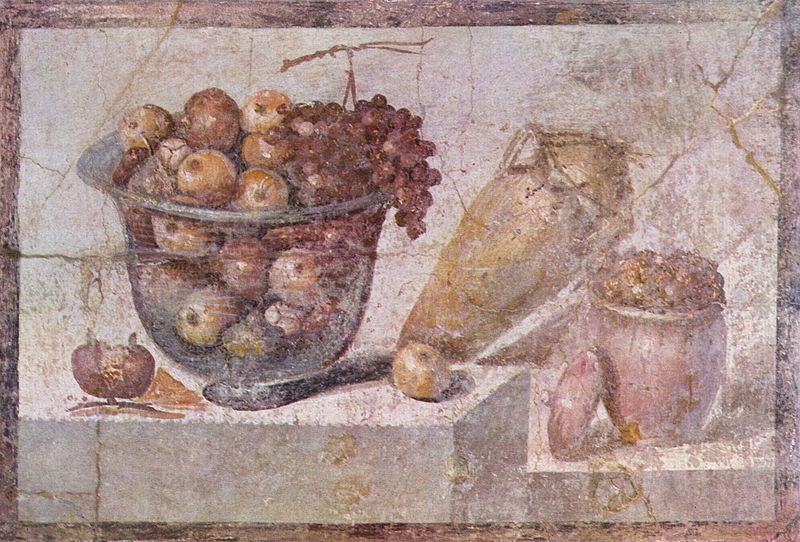5 Disgusting Recipes From The First Ever Celebrity Cookbook

Gordon Ramsay would blush
Long before the introduction of the tomato to Europe, Italy had a reputation for being a gourmand’s paradise. One of the most important sources for understanding ancient epicures is the collection of recipes known as Apicius de re coquinaria (roughly, Apicius on cooking). Apicius, a wealthy Roman of the 1st century C.E. who reputedly killed himself rather than eat cheaper food once he ran out of money, has gone down in history as the first celebrity chef. It’s unlikely, however, that he personally wrote any of the recipes in the collection, which probably dates to three centuries after Apicius’ untimely demise.
Many of Apicius’ recipes remain appetizing today (I recently helped Leftovers History select and research one tasty example). But others are better left to the dustbin of history. Here are 5 Apician recipes that we’d rather not try.

via Wikimedia
1. To Improve a Broth
If your reaction to noticing that your soup has spoiled to the degree that it stinks is to dump a bunch of spices in it and then serve it to your friends, please let me know so I can never ever eat at your house.
If a broth has contracted a bad odor, place a vessel upside-down and fumigate it with laurel and cypress and before ventilating it, pour the broth in this vessel. If this does not help matters and if the taste is too pronounced, add honey and fresh spikenard to it; that will improve it.
2. Vegetable and Brain Pudding
There’s nothing wrong with eating organ meat, and I’m not even a particularly picky eater. But 5-year-old me would have had a hell of a tantrum if my mom decided to serve this dish for dinner.
Take vegetables, clean and wash, shred and cook them, cool them off and drain them. Take 4 calf’s brains, remove strings and cook them in the mortar. Put 6 scruples (a type of measure) of pepper, moisten with broth and crush fine; then add the brains, rub again and meanwhile add the vegetables, rubbing all the while, and make a fine paste of it. Thereupon break and add 8 eggs. Now add a glassful of broth, a glassful of wine, a glassful of raisin wine, taste this preparation. Oil the baking dish thoroughly and place it in the oven and when it is done sprinkle with pepper and serve.

via Wikimedia
3. For Birds that Smell Strongly
There’s some scholarly debate over what “goatish” means in this recipe—is it just birds with a gamey flavor? Many Classicists, however, think that this recipe told cooks how to cover up the stench of rotting fowl.
For birds of all kinds that have a goatish smell, add pepper, lovage, thyme, dry mint, sage, dates, honey, vinegar, wine, broth, oil, reduced must, mustard. The birds will be more luscious and nutritious, and the fat preserved, if you envelop them in a dough of flour and oil and bake them in the oven. Alternately, stuff the inside with crushed fresh olives, sew them up, and thus cook, then retire the cooked olives.

via Wikimedia
4. To Make Spoiled Honey Good as New
Honey can actually stay good for a crazy long time, but you really don’t want to mess around with it when things go wrong.
How bad honey may be turned into a saleable article is to mix one part of the spoiled honey with two parts of good honey.
5. To Clarify Muddy Wine
No thanks, I’m good.
Put bean meal and the whites of three eggs in a mixing bowl. Mix thoroughly with a whip and add to the wine, stirring for a long time. The next day the wine will be clear.
Written by Caroline Wazer // History Buff // Recipes adapted from Joseph Dommers Vehling’s 1926 translations // Feature image via Wikimedia























